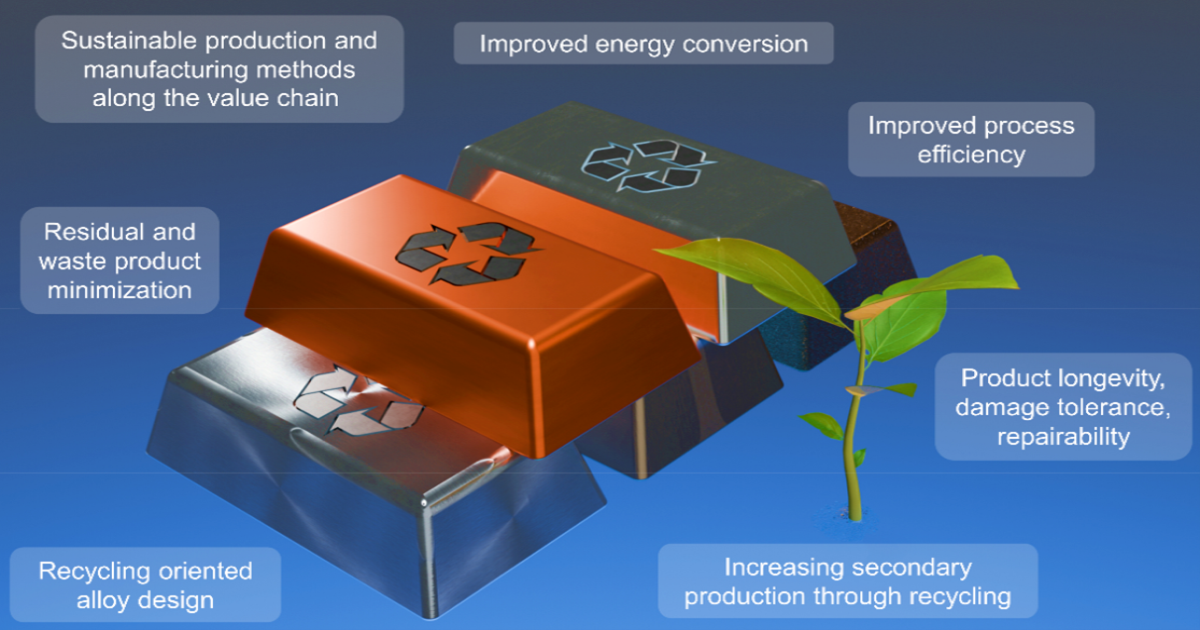Towards Sustainable Metal Technologies: For Future Material Needs
A special issue of Sustainability (ISSN 2071-1050). This special issue belongs to the section "Sustainable Materials".
Deadline for manuscript submissions: 31 May 2026 | Viewed by 284

Special Issue Editors
Interests: aluminum alloys; metal casting; liquid metal processing; metallurgy; light alloys; recycling
Interests: metallurgy; surface technology; steel technology; raw materials
Special Issue Information
Dear Colleagues,
Metals play a critical role in the global economy as they are essential materials for modern manufacturing technologies. Sectors like the automotive, aerospace, construction, and electronics industries all need metals and alloys for their extraordinary mechanical, electrical, and thermal properties. The production and most of the processing technologies of metals and alloys make a considerable contribution to industrial greenhouse gas emissions and global energy consumption. Also, metallurgical and metal processing technologies tend to generate a substantial amount of residual and waste products.
For these reasons, moving towards the application of more sustainable metal technologies is highly needed. Innovative approaches and solutions are crucial in minimizing energy and resource consumption, as well as environmental impacts. This Special Issue is dedicated to research that contributes to long-term sustainable development in the entire metal supply chain.
In this Special Issue, original research articles and reviews are welcome. Research areas may include (but are not limited to) the following:
- Sustainable primary production of metals and alloys;
- Recycling technologies of metals and alloys;
- Alloy development and design for improved circularity;
- Quality improvement of metallic materials and products to increase longevity;
- Sustainability in metal processing technologies and materials technologies;
- Recycling and reuse of metallurgical by-products;
- Energy and resource efficiency in metal synthesis and processing;
- Circularity in metal casting;
- Structural integrity of sustainable metal structures.
Dr. Gábor Gyarmati
Dr. Gábor Lassú
Dr. Gáspár Marcell Gyula
Guest Editors
Manuscript Submission Information
Manuscripts should be submitted online at www.mdpi.com by registering and logging in to this website. Once you are registered, click here to go to the submission form. Manuscripts can be submitted until the deadline. All submissions that pass pre-check are peer-reviewed. Accepted papers will be published continuously in the journal (as soon as accepted) and will be listed together on the special issue website. Research articles, review articles as well as short communications are invited. For planned papers, a title and short abstract (about 100 words) can be sent to the Editorial Office for announcement on this website.
Submitted manuscripts should not have been published previously, nor be under consideration for publication elsewhere (except conference proceedings papers). All manuscripts are thoroughly refereed through a single-blind peer-review process. A guide for authors and other relevant information for submission of manuscripts is available on the Instructions for Authors page. Sustainability is an international peer-reviewed open access semimonthly journal published by MDPI.
Please visit the Instructions for Authors page before submitting a manuscript. The Article Processing Charge (APC) for publication in this open access journal is 2400 CHF (Swiss Francs). Submitted papers should be well formatted and use good English. Authors may use MDPI's English editing service prior to publication or during author revisions.
Keywords
- metals
- alloys
- recycling
- metallurgy
- circularity
- metal processing
- casting
- forming
- additive manufacturing
- welding
- powder metallurgy
- hydrometallurgy
- physical simulation
- structural integrity
Benefits of Publishing in a Special Issue
- Ease of navigation: Grouping papers by topic helps scholars navigate broad scope journals more efficiently.
- Greater discoverability: Special Issues support the reach and impact of scientific research. Articles in Special Issues are more discoverable and cited more frequently.
- Expansion of research network: Special Issues facilitate connections among authors, fostering scientific collaborations.
- External promotion: Articles in Special Issues are often promoted through the journal's social media, increasing their visibility.
- Reprint: MDPI Books provides the opportunity to republish successful Special Issues in book format, both online and in print.
Further information on MDPI's Special Issue policies can be found here.







